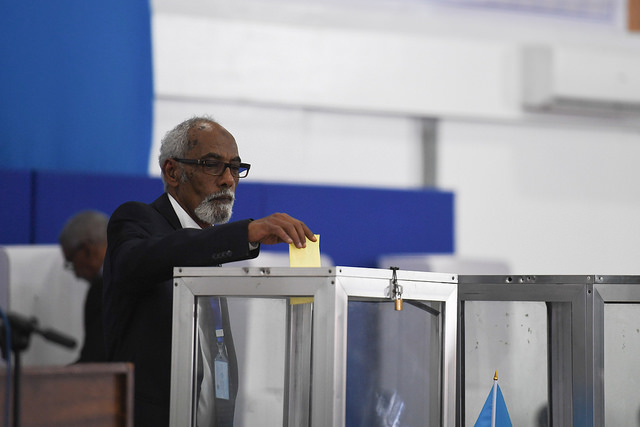Winner takes all election formula most viable-Parliamentary Committtee

The Parliamentary ad-hoc committee on elections law has proposed that elections in Somalia be held under a winner takes it all system otherwise known as the First-Past-the-Post (FPTP).
The committee’s report presented to the Lower House today dropped the earlier model endorsed by the cabinet in May. The model which was fronted by the National Independent Elections Commission (NIEC) and approved by the cabinet proposed that MPs be elected under the Proportional Representation (PR) Closed List.
But Somalis rejected the model and did not understand it, the Committee said. The model, the committee observed failed to take into consideration the clan distribution framework which respondents said must be maintained.
The FPTP which is used in Somaliland and Kenya among other jurisdictions provides for a winner takes it all scenario whereby the candidate who garners the majority vote automatically becomes the winner.
But to ensure enhanced legitimacy for the election of the president, the Kenyan system sets the 50+1 threshold and at least 25% of votes in at least 24 of the 47 counties.
The model will apply to parliamentary and local council elections but the president will still be elected by Parliament unless there’s a constitutional amendment to shift the power to choose directly to the people.
4.5 system
It appears also Somalis still want to hold on to the 4.5 system in choice of leaders, the report says.
“The parties we met made it very clear that at present it is impossible to move out of the previously agreed power sharing system of 4.5 and that any action that undermines the process will result in political instability and insecurity,” the report says.
However, the report does not explicitly indicate whether the FPTP will be conducted under a 4.5 framework.
All respondents set out clearly the conditions for holding a one-person-one-vote election thus: completion of the constitutional review, unity of the whole country, completion of the citizenship law, consensus from all Somali nationals and establishment of the boundaries in the districts and regions.
The committee report will be subjected to parliamentary debate and vote and should it be approved will form part of the Elections Bill currently heading to the second reading stage.